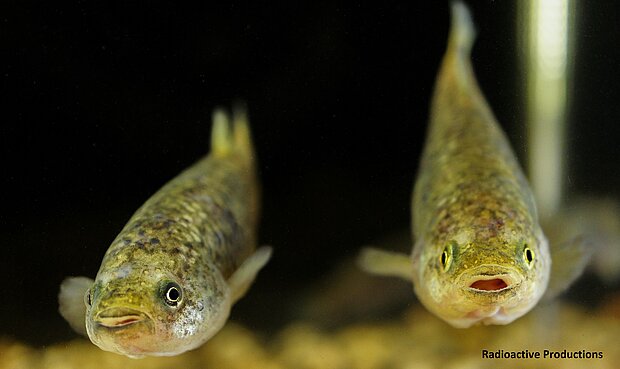
Research conducted by Craig Stockwell, NDSU professor in the biological sciences department and director of the environmental and conservation sciences graduate program, has been published by Science News.
The article, “After eon of isolation, these desert fish flub social cues” by Susan Milius, was posted to the journal’s webpage on Sept. 21. It is based on an article published Aug. 17 in the prestigious scientific journal Proceedings of the Royal Society B titled “Ignorance is not bliss: evolutionary naiveté in an endangered desert fish and implications for conservation.”
“It is nice for the Pahrump poolfish to get more some attention, especially since it was one of the of first species to be listed on the Endangered Species List. They have been relatively ignored, especially compared to their neighbor, the famous Devils Hole pupfish,” Stockwell said.
“Many of the so-called ‘desert fishes’ evolved in small desert oases with limited predator pressure and may have lost anti-predator behaviors,” he said. “Such predator naiveté may explain why a Pahrump poolfish population in Nevada plummeted from 10,000 to fewer than 1,000 fish following the introduction of two non-native predators.
Previous experimental work in Stockwell’s lab by graduate students Shawn Goodchild and Brandon Paulson showed endangered Pahrump poolfish to be exceptionally vulnerable to non-native predators. Starting in 2017, Stockwell, along with graduate students Madison Snider, Cody Anderson and biological sciences undergraduate student Bailey Gillis, worked with Brian Wisenden, professor at Minnesota State University Moorhead, to test Pahrump poolfish responses to chemical alarm cues typically released during predator attacks.
“Strong avoidance behavior has been reported for many species, but Pahrump poolfish did not respond to such alarm cues,” Stockwell said. Additional evolutionary analyses showed that other desert fishes respond to alarm cues, suggesting an evolutionary loss of alarm cue responses for poolfish which incidentally evolved in isolation from fish predators. “Thus, poolfish are apparently naïve to non-native predators, which emphasizes the importance of continued surveillance for non-native predators,” he said.
Stockwell joined the NDSU faculty in 1998. He earned his bachelor’s degree at the University of Colorado, Boulder; master’s degree in biology at Northern Arizona University, Flagstaff; and doctorate in ecology, evolution and conservation biology at the University of Nevada, Reno.
As a student-focused, land-grant, research university, we serve our citizens.

